Indiana isn’t immune to the skilled worker shortage sweeping America, a fact that one flooring company learned the hard way. Hochstedler Floorcovering in Kokomo hopes to solve that problem by partnering with the Indiana/Kentucky/Ohio Regional Council of Carpenters.
to solve that problem by partnering with the Indiana/Kentucky/Ohio Regional Council of Carpenters.
“There’s a real shortage of flooring installers out there that really want to learn the trade,” Greg Hochstedler says. “We believe partnering with the carpenters will help get us trained flooring installers – that’s hard to find nowadays.”
Carmella Hochstedler, who runs the business alongside her brother & father, says they’ve been looking for a way to get new installers as many of their longtime employees are getting close to retirement.
“We really needed a better way to train the next generation,” she says. Adding, “We’ve used subs in the past, but it’s hard to get guys to stay due to the nature of the work.”
Carmella hopes partnering with the carpenters and their highly trained members will help grow the family business. “It will open doors we haven’t been able to on our own,” she says.
 Hochstedler opened in its doors in 1998 after Greg and his father wanted to run a flooring company, instead of working as installers as they had since the early 1980s. The company has been family owned and operated since its inception.
Hochstedler opened in its doors in 1998 after Greg and his father wanted to run a flooring company, instead of working as installers as they had since the early 1980s. The company has been family owned and operated since its inception.
Today there are three generations of Hochstedlers working at the company, although it’s not uncommon to see the next generation in the store learning the trade.
Hochstedler Floorcovering sells and installs vinyl, laminate, hardwood, ceramic, carpet and many more types of flooring. Currently, their wait time for installation is about three weeks, but with an influx of skilled floor coverers from the carpenters they can now service commercial clients much faster.
Hochstedler Floorcovering serves Kokomo, Logansport, Marion, Peru, Tipton, Westfield and portions of Carmel.

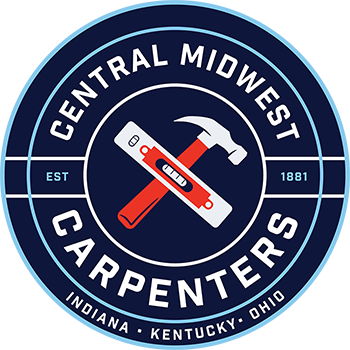



 The IKORCC Merrillville project was recognized for being completed on schedule, within budget, with minimal disruption to the operation, all while upholding the highest commitment to safety.
The IKORCC Merrillville project was recognized for being completed on schedule, within budget, with minimal disruption to the operation, all while upholding the highest commitment to safety.
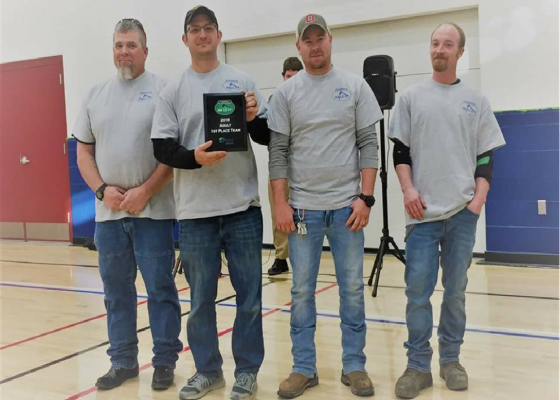

 to solve that problem by partnering with the
to solve that problem by partnering with the  Hochstedler opened in its doors in 1998 after Greg and his father wanted to run a flooring company, instead of working as installers as they had since the early 1980s. The company has been family owned and operated since its inception.
Hochstedler opened in its doors in 1998 after Greg and his father wanted to run a flooring company, instead of working as installers as they had since the early 1980s. The company has been family owned and operated since its inception.
 Last week Union Carpenters kicked off the
Last week Union Carpenters kicked off the  Dan Sustin, Training Coordinator in
Dan Sustin, Training Coordinator in 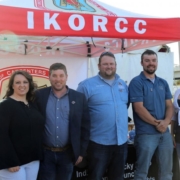

 One of our carpenters and his wife, who volunteered at the event, were thrilled to meet country star Tyler Farr just before his concert Saturday!
One of our carpenters and his wife, who volunteered at the event, were thrilled to meet country star Tyler Farr just before his concert Saturday!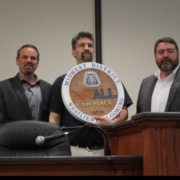
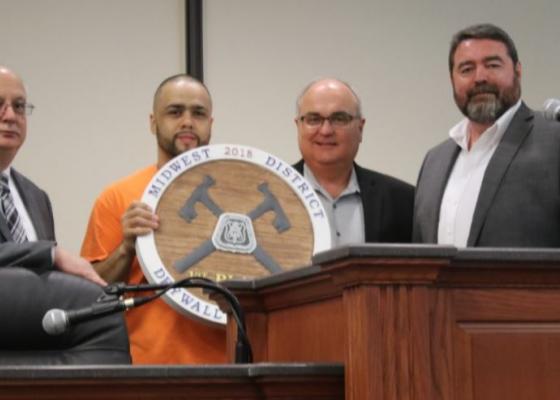 & Flooring Olympics at the
& Flooring Olympics at the 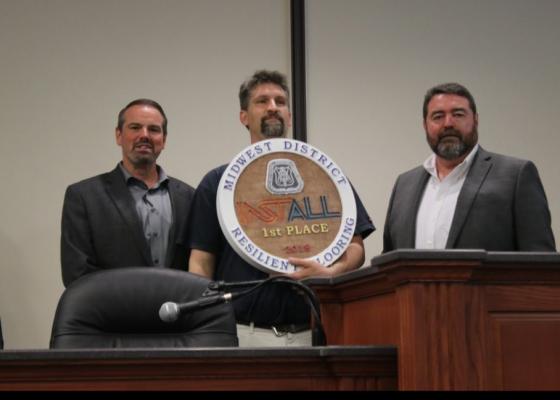



 He and his wife found out their daughter would be born with Down Syndrome 13 years ago. The two quickly made a connection with the local organization,
He and his wife found out their daughter would be born with Down Syndrome 13 years ago. The two quickly made a connection with the local organization,  “I can’t thank my fellow Brothers and Sisters of these Locals for their generous support and donations,” Dan Sivertson says.
“I can’t thank my fellow Brothers and Sisters of these Locals for their generous support and donations,” Dan Sivertson says.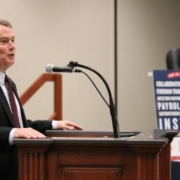
 the city, and taxpayers.
the city, and taxpayers.